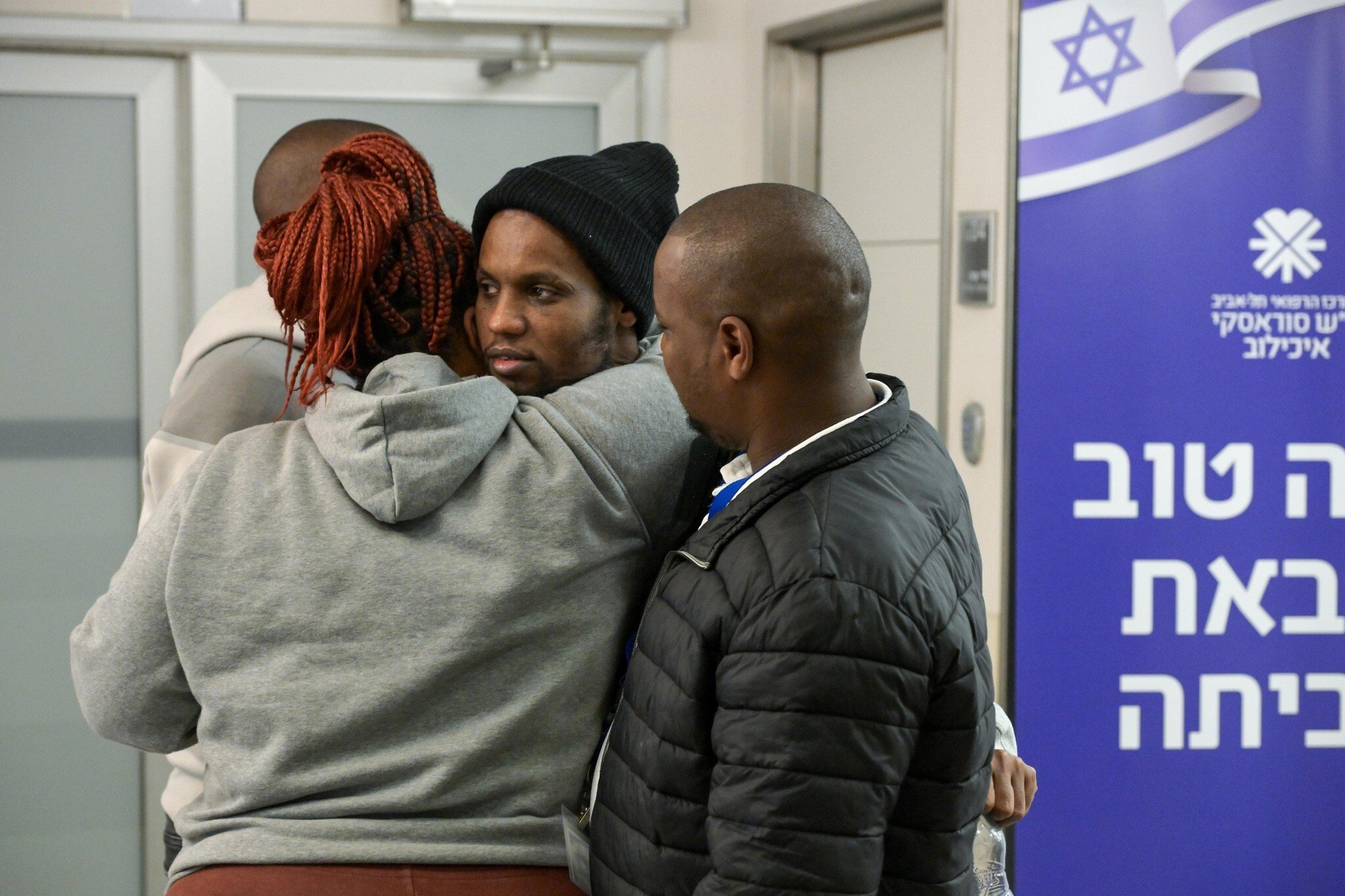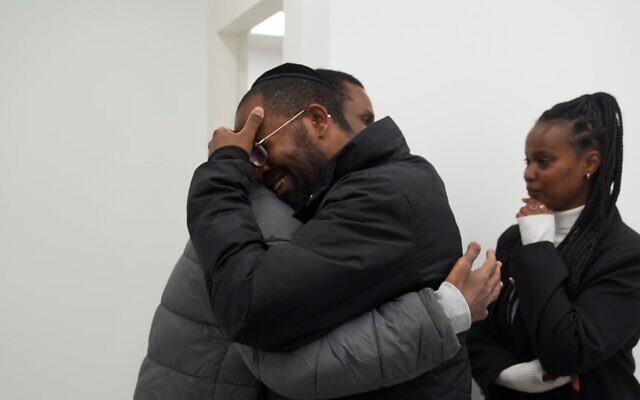



Avera Mengistu, who was freed from Hamas captivity earlier this year after spending more than a decade as a hostage in the Gaza Strip, was discharged from the hospital on Tuesday after five months of treatment.
His family said that he would now be moved to sheltered accommodations adapted to his needs.
“I still can’t believe that he’s here with us,” Mengistu’s sister Alemnesh said, in a statement distributed by his family to Hebrew media outlets.
“I’m extremely proud of the path and the change he has been through since his return from captivity, with all the difficulties and ups and downs,” she said. “He has undergone a significant healing process.”
Mengistu, 38, entered the Gaza Strip of his own accord in 2014, amid mental distress. He was arrested by Hamas shortly after entering the coastal enclave.
The terror group claimed he was an Israeli soldier, although he was never drafted to the military, having been declared not medically fit for service back in 2003.
On-and-off negotiations over the years failed to bring about Mengistu’s release until this February, when he was freed with several other captives during a ceasefire and hostage release deal.
In total, Mengistu spent 3,821 days in captivity.
Upon his release from Gaza, Mengistu was admitted to Ichilov Hospital where he underwent intensive physical and psychiatric treatment.
His family thanked the hospital and its mental health department on Tuesday for the “dedicated, intensive and sensitive care” that he received over the past few months.
“Thanks to them, he can now be released from the hospital and move into housing adapted to his needs,” Alemnesh said.
Heaping praise on the hospital, Alemnesh said that the “sensitive and humane treatment” that her brother received was the first step in bridging the gap “between the days of captivity and his return to himself and his community, healthier in mind and body, and more mature for the rest of the journey.”
Mengistu, upon being discharged, said he was “excited” for his next steps, his family conveyed.
The family also thanked all those who campaigned for his release over the past decade and for supporting him “during the long years of captivity and to this day.”
Mengistu hails from Ashkelon’s working-class Ethiopian-Israeli community and his family struggled over the years to rally public support or pressure the government to secure his release.
Some relatives alleged racism, and contrasted his plight with that of soldier Gilad Shalit, a cause célèbre who was freed in 2011 in exchange for over 1,000 Palestinian inmates.

